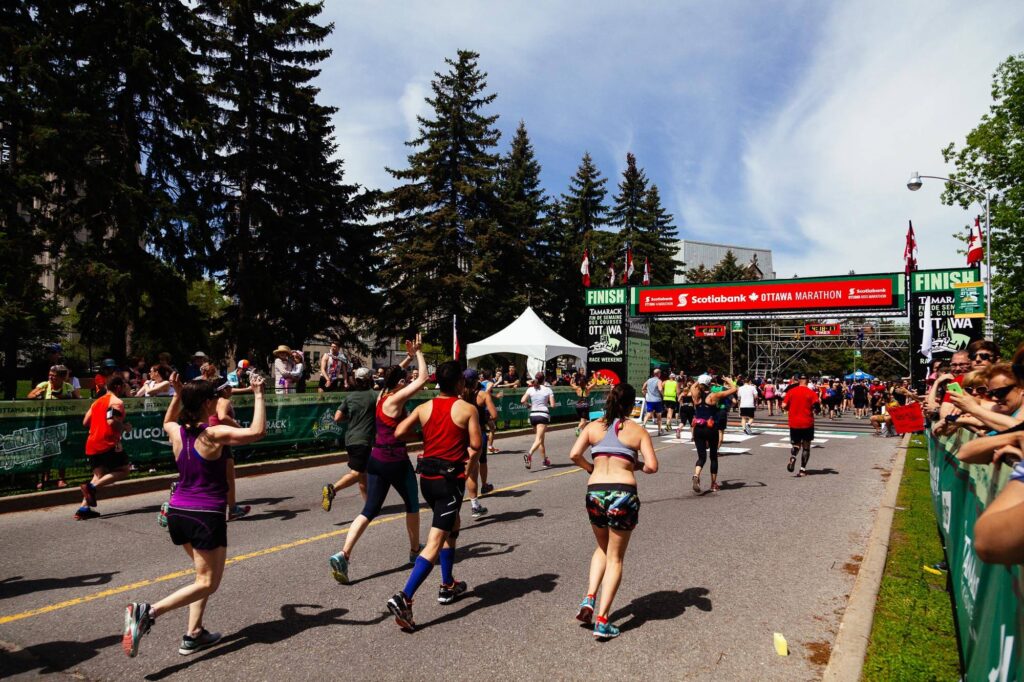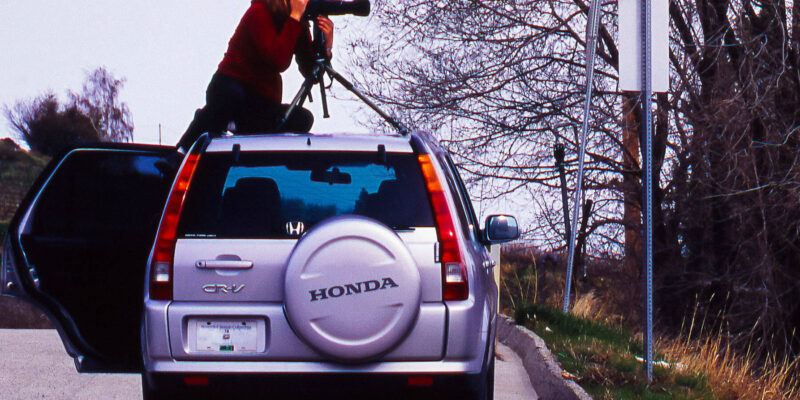
What’s the first thing that comes to mind when you see or hear the word marathon?
Chances are it’s something to do with endurance.
At the turn of the calendar year many articles compared our current global pandemic to a marathon. It makes sense because finishing a marathon and many aspects of pandemic life both require endurance. Some are even written by people who have run marathons. This is not one of those articles.
I’ve lumbered through five or six half marathons in Kelowna, Seattle, Vancouver, and twice, possibly three times in Ottawa. One of my outings was either so traumatic or forgettable that I can’t remember it without opening a long sealed box of medals.
I’ve kept a running list in my head of all the ways anything that is not a marathon is not like a marathon since 2016 when the Sedona sweat lodge was infamously compared to – you guessed it, a marathon – in the documentary Enlighten Us.
Here my running list:
- You know what a marathon is when you sign up it.
- Come to think of it, you sign up for it.
- 99.9% of people who sign up for a marathon follow a training schedule in preparation for race day.
- Race day is one day long.
- A marathon of any length is a fixed length. It doesn’t change while you’re running it.
- There’s an actual finish line.
- People you don’t know cheer for you. Out loud.
- You get a medal at the end.
- Then strangers give you food and a blanket.
- There’s lots of happiness and hugging.
- You can stop any time.
Large scale marathons are major events. Streets are closed off, fences installed, expos put on by vendors bringing the latest and greatest to the marathon community.
12. The entire marathon community is united by one goal – to finish the marathon as soon as they can.
On the most enjoyable race days, spectators line the streets to cheer you on, banging pots and holding signs. Of the five – or six – long distance races I’ve completed, Ottawa has the best crowds and the worst finish line.
The crowds are the best because it’s clear the race has the support of the community. There is never a long stretch of the course where runners are on their own. They bang pots, ring bells, sing and dance. Some make and bring signs.
The funniest sign – the first time I saw it – was about kilometer 18 of the 21.2 km race. The sign had “Worst parade ever!” hand painted in bright red.
By that point I had stopped questioning what the f*** I was doing. My mind had long escaped my body. I was likely in deep negotiation with God for a final boost of energy.
“Worst parade ever!” brought me back into the moment where I noted the absurdity of it all and laughed out loud. The sign holder laughed back, and our exchange gave me that much needed push.
He was correct. A marathon by any measure is a very boring parade. It’s missing all the floats, marching bands, and participants who aren’t grimacing.
Our pandemic is the worst marathon ever. It’s missing all of the things that make marathons great: a sense of cohesion and belonging, a fixed finish line, happiness,hugging, and bananas and bagels at the end.
Of all the race courses I’ve run or spectated – I’m extending my first hand experience to the ones I’ve worn my voice out spectating – Chicago, London and Manchester in the UK, and Longford, Ireland – the final strides in the Canadian capital Ottawa, are the best and the worst.
The approach to the Ottawa finish line is awesome. With the Canadian parliament buildings in the background, it’s surrounded by stands that are packed with families and friends of runners. They alternate in unspoken synchrony, giving up their seats once their loved ones have come through.
But the last kilometer of the Ottawa race gets you, especially the first time you run it. You can hear the roar of the crowd growing for the last five kilometers as you come close, and then the course winds further away to Dow’s Lake. Then, the roar becomes louder again as you approach what you think is the final curve. Your pace picks up, already celebrating your done-ness. And then you round the corner and all that greets you is more corner. You can’t even see the stands. It dawns on you there’s at least another four hundred meters to go and if you’re not careful, you bottom out.
The finish line doesn’t move anywhere but in your mind. Your body, having spent its glycogen stores, is literally running on empty. It’s your mind that gets you there in the end.
I don’t know if all the pandemic marathon metaphors and analogies are the cause, but I’m considering a run at my sixth (or seventh) half marathon this year. I need a little cooperation and healing from my feet for it to happen, but I’m working towards it a little bit every day.
A marathon is not a parade and a pandemic is not a marathon. But the key to finishing our marathon of a pandemic is managing your mind and body, a little bit every day.



